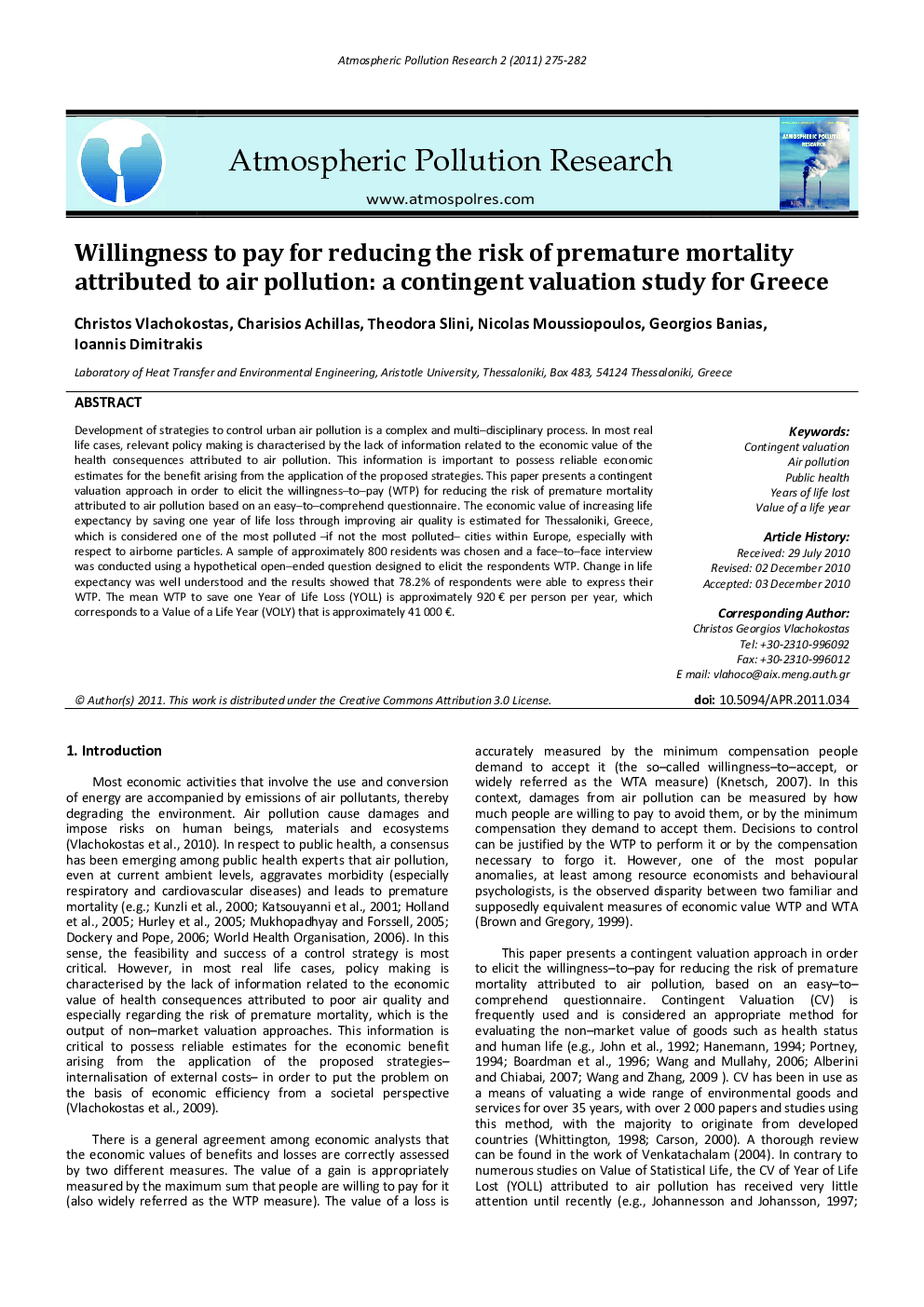| Article ID | Journal | Published Year | Pages | File Type |
|---|---|---|---|---|
| 4434927 | Atmospheric Pollution Research | 2011 | 8 Pages |
Development of strategies to control urban air pollution is a complex and multi–disciplinary process. In most real life cases, relevant policy making is characterised by the lack of information related to the economic value of the health consequences attributed to air pollution. This information is important to possess reliable economic estimates for the benefit arising from the application of the proposed strategies. This paper presents a contingent valuation approach in order to elicit the willingness–to–pay (WTP) for reducing the risk of premature mortality attributed to air pollution based on an easy–to–comprehend questionnaire. The economic value of increasing life expectancy by saving one year of life loss through improving air quality is estimated for Thessaloniki, Greece, which is considered one of the most polluted –if not the most polluted– cities within Europe, especially with respect to airborne particles. A sample of approximately 800 residents was chosen and a face–to–face interview was conducted using a hypothetical open–ended question designed to elicit the respondents WTP. Change in life expectancy was well understood and the results showed that 78.2% of respondents were able to express their WTP. The mean WTP to save one Year of Life Loss (YOLL) is approximately 920 € per person per year, which corresponds to a Value of a Life Year (VOLY) that is approximately 41 000 €.
